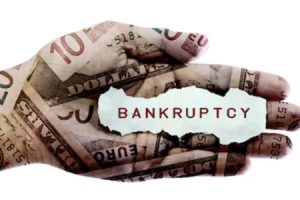Three Quick Ways to Bounce Back from a Chapter 7 Bankruptcy

Generally, Chapter 7 remains on your credit report for ten years after discharge. During that waiting period, some former debtors have issues obtaining credit at reasonable rates. Other former debtors have the opposite problem. They receive numerous credit offers, especially credit card offers, promptly after discharge. Creditors know that consumers cannot file another Chapter 7 for eight years, in most cases.
Typically, extreme financial circumstances prompted the bankruptcy filing in the first place. So, an experienced bankruptcy attorney can show you some ways to find a middle ground. When conducting their reviews, most moneylenders only care about the previous 90 days of financial activity. So, people who follow these three basic tips often recover from bankruptcy in just a few years.
Remain Current on Monthly Obligations
Most former Chapter 7 have mortgages, car payments, auto insurance payments, and other monthly obligations. In most cases, these creditors report payment information directly to the credit reporting bureaus. So, any delinquency could torpedo all other efforts to rehabilitate your credit history.
Generally, property rent payments do not directly affect credit reports, especially if the landlord is an individual. In these situations, ask your landlord to report on-time payments to credit bureaus. The worst thing the landlord can say is “no.”
Build a Reserve
A financial storm, like unemployment or illness, often has a hand in a bankruptcy filing. These storms are likely to strike again. So, it’s best to be ready for them.
Build a monthly payment reserve. Each time you pay a monthly bill, add a few dollars to the amount. After just a few months, that payment reserve could be substantial. So, when another storm hits, you may be able to skip a payment. Alternatively, if you have a good payment history, the moneylender may be willing to defer a payment until the end of the note.
A personal reserve is a good idea as well. Use the same approach (i.e. put away a few dollars a month) and set realistic savings goals. Benchmarks like three or six months’ of living expenses are probably unrealistic. Besides, if a disaster of that magnitude strikes your family, paying monthly bills will probably not be your top priority.
Get a Credit Card
It may seem unusual for Chicago bankruptcy lawyers to recommend that former debtors acquire new debt. But that’s what we are saying. Borrowing a little money each month and diligently repaying it is a very good way to increase your credit score.
Once again, think small. Find a card with a low credit limit, perhaps $1,000. Secured credit cards are usually easier to qualify for after bankruptcy. Some of these companies do not include a “secured” notation on their payment reports, so your score will rise even faster.
Use the card each month and make a payment each month. There is some dispute as to whether it’s best to pay the entire balance or leave a few dollars unpaid. Since banks earn money on interest charges, potential lenders may react positively to that payment habit.
Remember that some lenders refuse to work with people who have just received a bankruptcy discharge. If that’s true, just move onto the next one. There are plenty of lenders who will make accommodations in these situations.
Reach Out to Experienced Lawyers
Responsible money management helps you put a bankruptcy behind you. For a free consultation with an experienced Chicago bankruptcy attorney, contact the Bentz Holguin Law Firm, LLC. We routinely handle matters in Indiana and Illinois.
Resource:
nerdwallet.com/blog/finance/credit-score/how-long-bankruptcy-stays-on-credit-report/


